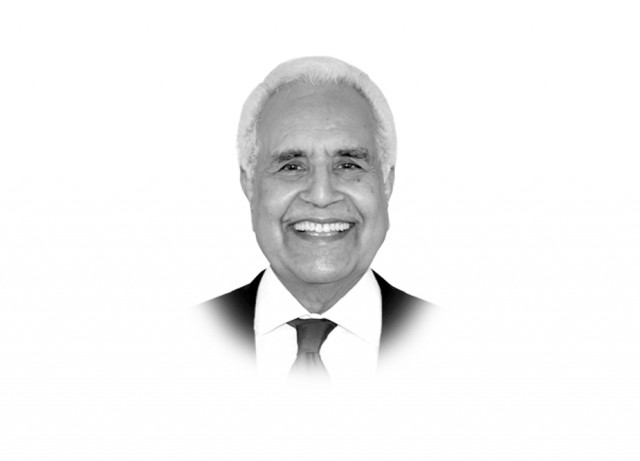Policing Karachi
Karachi is a mixture of high-walled fortress like villas in posh areas and acres and acres of rundown shanty towns.

The writer has served as director general of the FIA and retired as an inspector general, police
wajahat.latif@tribune.com.pk
Today — just over a hundred years after that time — what have we accomplished? In 2011, Karachi’s population grew to 18 million. That gives it the dubious distinction of becoming the biggest metropolitan city in the world. I say ‘dubious’ because this phenomenal growth has mostly been unplanned. In the absence of a parallel development of physical infrastructure of the city, the growth in size and numbers has only added to filth and squalor. It is a weird mixture of high-walled, fortress-like sprawling villas in posh areas with private guards and gates and acres and acres of rundown shanty towns where stark poverty stares you in the face.
Killing is an everyday affair. Kidnapping for ransom, robberies and sectarian violence have gone into the veins and arteries of this once very peaceful city. Corruption is a part of life here. Gangs of criminals flourish with impunity as the law enforcement is defaulted in corruption and politics. Having been the frequent subject of attacks and criminal violence, the police are on the back foot and in tandem, so are the paramilitary Rangers. One National Assembly member recently remarked: “So what if the police have been politicised, they could still be made to work”. How absurd can you get!
Karachi is, ethnically, the most diverse city of Pakistan. It has Sindhis, Mohajirs, Baloch, Pathans, Punjabis, Parsis and many other smaller ethnic communities. There are minority Hindus and Christians but the dominant communities remain the Mohajirs, the Sindhis, the Pathans and the Punjabis; now living in friction, acrimony and violence. Unfortunately, political interference and patronage of corruption and nepotism has destroyed the effectiveness of the police.
In 1947, when it became the capital of Pakistan, Karachi was already a thriving metropolitan city. The emigration of Hindu and Sikh businessmen affected the demography of Karachi and the city suffered some decline, but it remained multicultural in character. Even when it went back to the status of a provincial capital following the shifting of the federal capital to Islamabad in 1958, Karachi’s cultural diversity remained in character. There were no problems of harmony within different communities. In a manner of speaking, Karachi found unity in diversity.
So, why did such a happy city of diverse cultures and languages come to this sorry pass of killings and street crime and terrorist gangs and extortionists? I think the trouble with Karachi is politics.
For too long, Karachi has been allowed to spread beyond the parameters of law enforcement. For too long, its law-enforcement machinery has been neglected. Now, it might already be too late but a few steps need to be taken immediately.
Firstly, the public representatives must begin to take some responsibility of law and order in their respective constituencies. They must allow the district administration to enforce the law rather than subdue their opponents. Secondly, the government must treat the entire question of law and order as a policing issue. Thirdly, the police ranks must be cleared of all the criminal elements that have crept into it in different ways. All new recruitment should be merit based. Moreover, the police leadership at the district, metropolitan and provincial level should be carefully appointed, and then allowed the space and time to function effectively. Lastly, police training should be modernised on scientific lines — lack of resources is no excuse — immediately.
If any measure does come close to a quick fix it is this. Political parties, supported by a strong political will of the government, must agree not to interfere in the police. If this cannot be done, we can forget about peace in Karachi. Now, who will bell the cat?
Published in The Express Tribune, September 19th, 2013.
Like Opinion & Editorial on Facebook, follow @ETOpEd on Twitter to receive all updates on all our daily pieces.














COMMENTS
Comments are moderated and generally will be posted if they are on-topic and not abusive.
For more information, please see our Comments FAQ